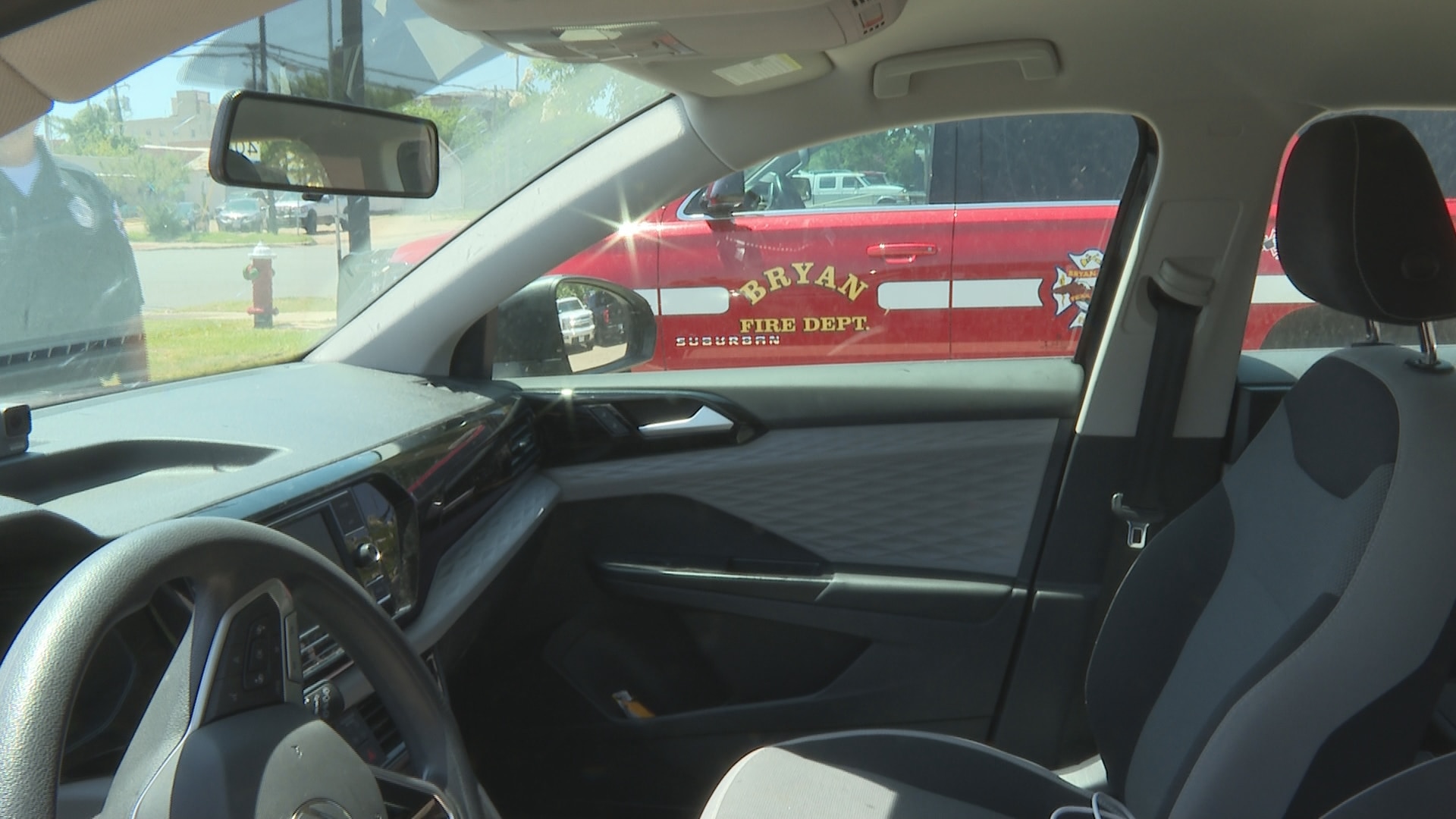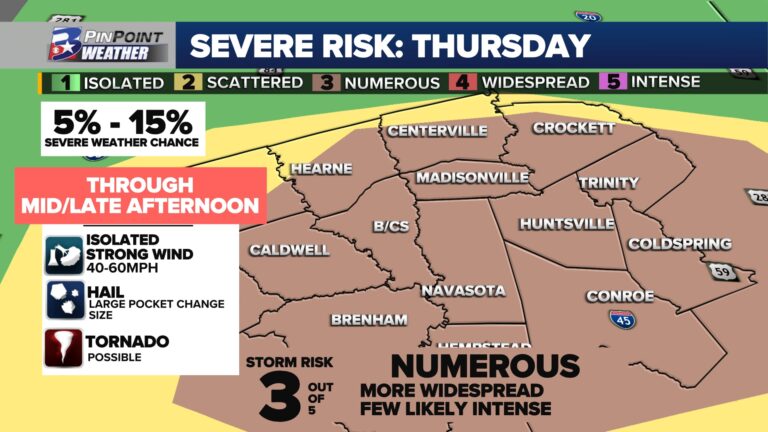Experts warn about hot car dangers for kids and pets amid heat wave
BRYAN, Texas (KBTX) – High temperatures are sweeping the state and it’s a good reminder for parents to add an extra step to their routine when leaving the house with kids.
Each year across the country, an average of 38 kids under the age of 15 die in hot car-related incidents. While it can be easy to pop into the gas station quickly, experts say you need to ensure everyone in the car comes with you.
“The second you shut your door and close up your windows, turn your engine off within the first 10 minutes, the max heat range that you can get in your car 80% of that max heat range happens within the first 10 minutes. So time is of the essence of not forgetting your kids and your pets in the car,” Chris Lamb with the Bryan Fire Department said.
The Texas A&M AgriLife Extension Child Safety Initiative program works to ensure all passengers, especially children, remain safe while in a car. Much of the work includes running booster seat checks and education programs. But, Coordinator Ayde Edwards says they focus on heat safety. Their goal is to ensure no child in Texas dies due to being left in a hot car. So far in 2023, one child under the age of 15 has died a hot car. This is why Edwards says their work is not done.
They go around the state and encourage parents to put something you can’t walk away from the car without in the backseat. This can be a shoe, wallet or keys.
“Putting your purse in the back seat can be an example of how you can make sure to just double-check that back seat before you leave, there could be something else that you leave in the back seat just to remind yourself to always look back there,” Edwards said.
KBTX’s Morgan Riddell joined Lamb in an experiment to see just how tough those first few minutes in a hot car can get.
“We do have paramedics outside of the vehicle just for safety reasons, but I wanted to demonstrate just how quickly a car can heat up in the summertime and how dangerous it is to forget about your kids or leave pets in the car,” Lamb said.
The car temperature surpassed 140 degrees within just minutes of keeping the doors closed. A heart monitor was used, showing a heart rate increase from 70 bpm to over 120 bpm from just sitting in the car.
“That’s your body trying to accelerate pumping blood around your body to help cool your body down and you know, normally, 60 to 100 is a normal heart rate. So in just a few minutes that we’ve been in here and you can see we’re both very sweaty, your body’s already trying to compensate and so you can imagine what it’s like with a kid being in a car for 30 minutes,” he said. “Their little hearts are beating too hard and the faster their heart rate goes their bodies are trying to compensate.”







